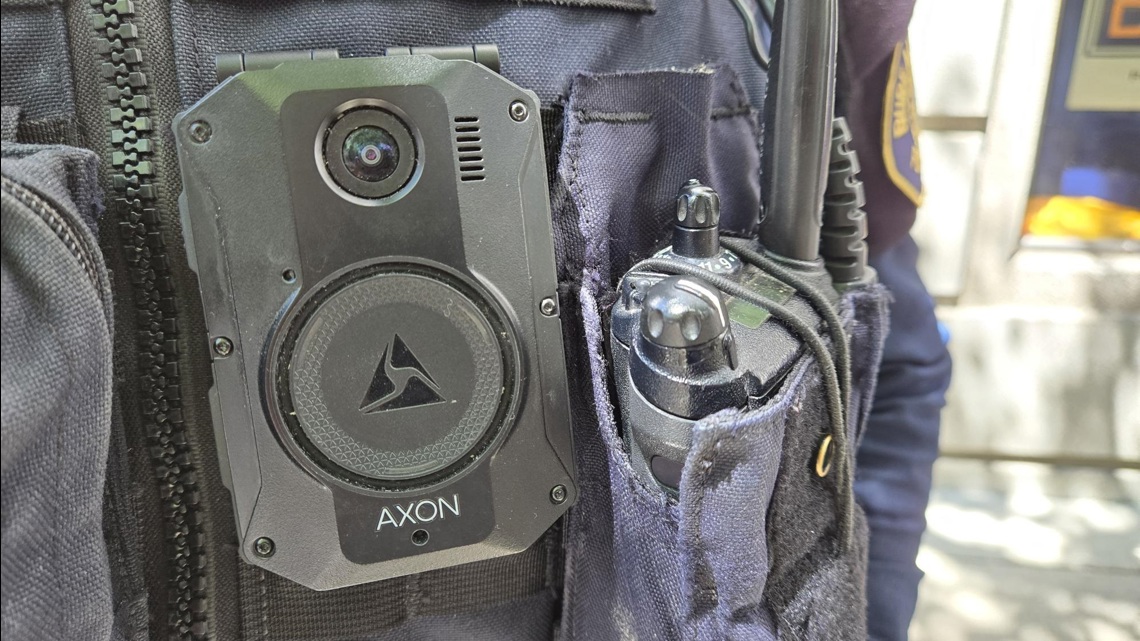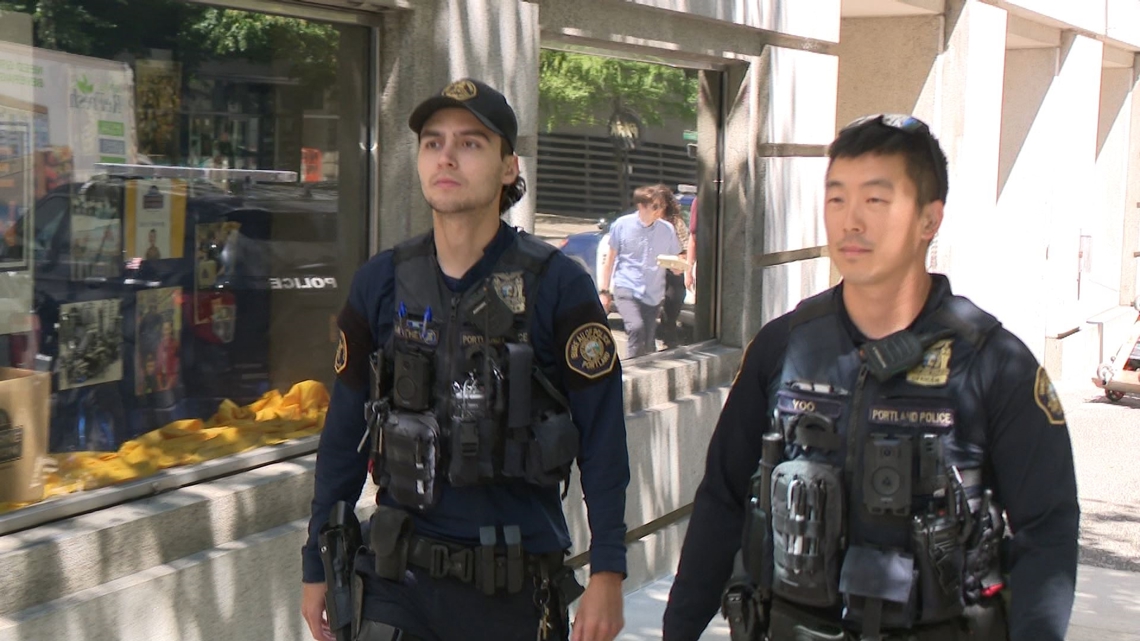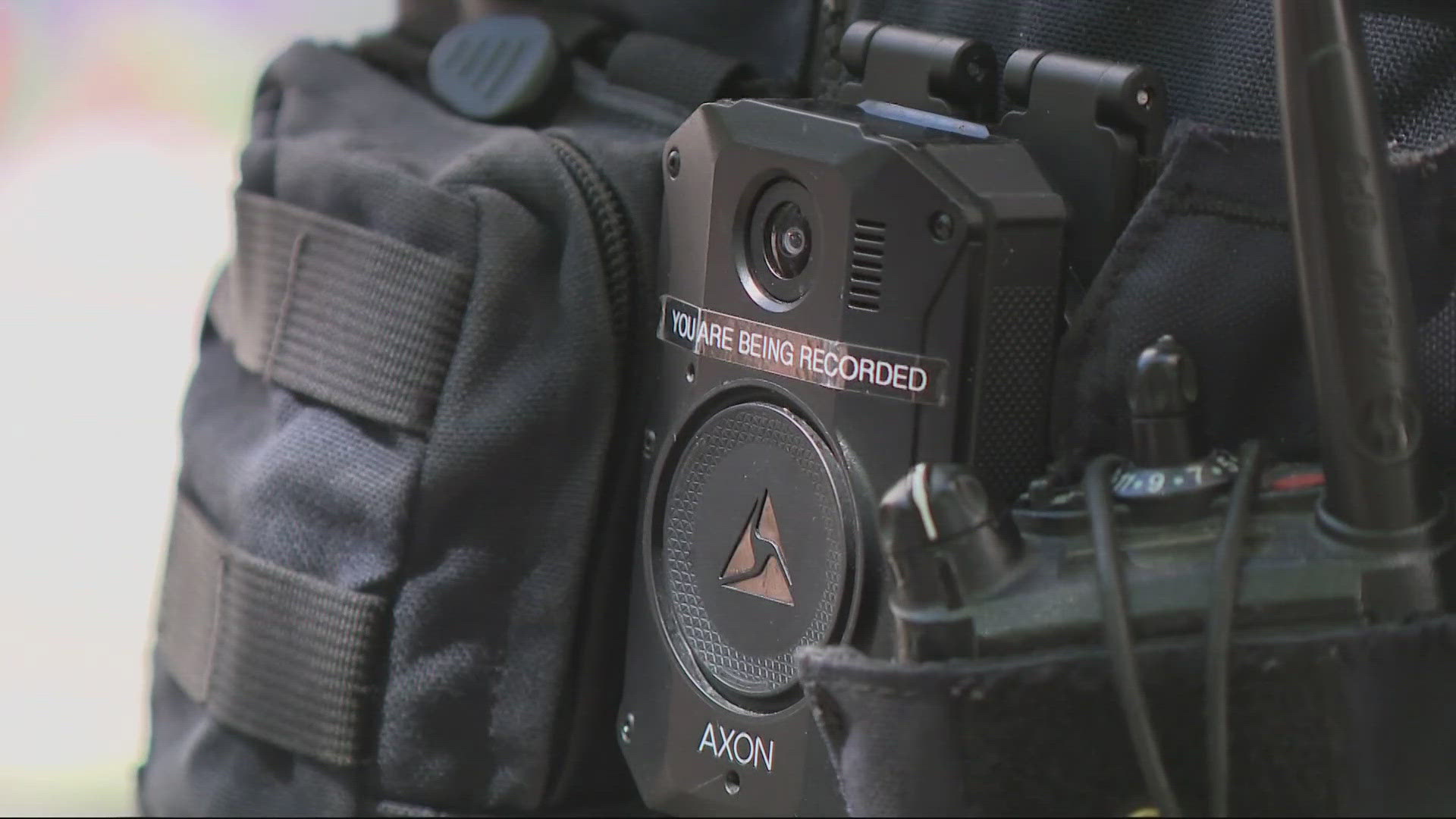PORTLAND, Ore. — The Portland Police Bureau (PPB) began rolling out a full-scale body camera program on Monday, equipping all Central Precinct officers with body-worn cameras while on duty.
Officers in the North Precinct will get cameras in mid-July, according to the bureau, followed by the East Precinct in August. All other divisions and units will receive their body cameras by the time the East Precinct gets them, PPB said. The delay for the East Precinct is due to a need to upgrade an internet connection.
"There's a lot of reasons why we're really excited to have cameras," said public information officer David Baer. "First, obviously, capturing an indisputable video representation of what happened in an incident. Being able to do follow up. The body-worn camera program comes with other programs that allow people on scene or witnesses or victims to upload digital evidence directly to PPB, which saves us a bunch of time."
The rollout caps off a years-long effort to equip Portland police with the technology, a process that dragged on even as many smaller neighboring cities set up programs of their own, leaving Portland with the dubious distinction of being the last large city in the United States that still lacked police body cameras.


The city has been investigating the use of body cameras since at least 2019, in part at the urging of the U.S. Justice Department as part of a 2014 settlement over use-of-force policies, but development was hamstrung by budget problems and later bogged down amid negotiations between the city and the Portland Police Association, the union that represents rank-and-file PPB officers.
One of the central sticking points was whether officers should be able to review body camera footage of incidents before writing reports, with the union taking the position that prior review should be allowed in all cases, while the city (and the U.S. Department of Justice) pushed for a more limited approach.
The city and the union declared an impasse over the issue in February last year, sending the issue into state arbitration. The two sides reached a deal in April, under which the ability of an officer to review the footage would depend on the severity of the incident. In cases involving deadly force or serious bodily injury, officers would have to give a formal written statement before being able to review the video.


The city council approved the policy a short time later, and about 150 officers from the Central Precinct and the Focused Intervention Team (FIT) began wearing body cameras as part of a two-month pilot program last summer. The council approved $2.6 million in November to fund a full-scale expansion of the program.
The Axon Body 3 cameras will be attached to the front of each officer's vest at chest level, with microphones and a fisheye camera to capture footage. They won't be running constantly — the record function has to be either manually switched on or triggered by a Bluetooth signal, which will be automatically sent to all nearby body cameras whenever an officer turns on their vehicle's emergency lights or draws their gun or taser.
Some of the sensors for those automatic signals had to be recalibrated Monday morning because it turned out they were too sensitive and had been sending activation signals when officers were just moving around normally, Baer said, but he said the overall rollout was proceeding smoothly.

